Video
youtube
Latest:Kenya: Shock as Primary School Pupils Are Busted in Underage Sex Hideout By Mwende Kasujja Police in Kayole have arrested 10 pupils from Thawabu Primary School who were busted while engaging in underage sex at one of their school mate's home.
0 notes
Text
childrenneedsfoundationplc
childrenneedsfoundationplc
Andria Zafirakou, who was awarded 1 million U.S. dollars when declared the winner of the Varkey Foundation Global Teacher Prize 2018 in March, urges South African and Kenyan teachers to apply for the 2019 award before it is too late.
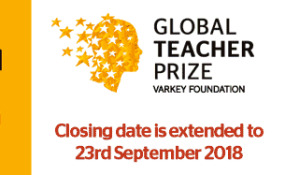
Andria Zafirakou joins celebrated Kenyan teacher Michael Wamaya to make the final call for Global Teacher Prize 2019
Andria Zafirakou, who was awarded US$1M when declared the winner of the Varkey Foundation Global Teacher Prize 2018i n March, today urges Kenyan teachers to apply for the 2019 award before it is too late. She also called on parents and pupils to put forward their most inspirational teacher for the prize before nominations and applications close on Sunday 23rdSeptember.
The Art and Textiles teacher from London, UK, said:
“I encourage any inspirational Kenyan teacher to apply for the prize, to come forward in order to help showcase and celebrate the great work they’re doing in preparing young people for a future which is hugely unpredictable.
I also encourage everyone in Kenya, from politicians to parents, to support teachers in every way they can. After all, If the next generation are to meet the colossal challenges they face in a world made all the more uncertain by the rapid pace of technological change, they will need the very best education and that starts with teachers.
Winning the Global Teacher Prize 2018 has been a life-changing experience for me. But far more importantly, it has helped me shine spotlight on the vital importance of increasing respect for teachers and unearthed the awe-inspiring stories of thousands of my peers across the world. And it has allowed me to help campaign to change the lives of pupils in my country by championing the transformative power of the arts in our schools.”
Many Kenyan teachers have been shortlisted for the Global Teacher Prize since its launch in 2015. Abdikadir Ismail, who teaches Kiswahili and history at Mwangaza Muslim Mixed Day School, Maralal, Samburu County, was shortlisted for this year’s Prize having been selected from over 30,000 nominations and applications from 173 countries around the world. Michael Wamaya, a dance teacher from Mathare, Nairobi, was a Top 10 finalist for the 2017 Prize, while Ayub Mohamud, a business studies teacher at Eastleigh High School, Nairobi, was a Top 10 finalist for the 2016 Prize. Michael Walter Kagwa, a teacher at IFO 2 Refugee Camp, made the Top 50 shortlist for the 2016 Prize. Jacqueline Jumbe-Kahura, a teacher at Bofa Primary School in Kilifi, was a Top 10 finalist for the 2015 Prize.
Michael Wamaya, a dance teacher from Mathare, Nairobi, who was a Top 10 finalist for the 2017 Prize, said:
“As a dance teacher, I try to help my students achieve their creative potential and build their confidence and self-esteem. Encouraging them to have fun while learning and exploring their selves and beliefs has helped turn around dropout rates and bring down teenage pregnancies among my students.
“Being shortlisted for the Global Teacher Prize allowed me to tell my story and shine a spotlight on the work I have been doing to improve educational outcomes in some of my country’s most deprived communities. It also allowed me to hear the stories of so many of my colleagues across Africa and the world and learn from them the amazing things they have been doing to educate the next generation. I would urge Kenyan teachers to apply for next year’s prize so your stories can be told and so that together we can all work to empower our children.”
Nominations for the US$1 million award, which is now in its fifth year and the largest prize of its kind in education, can be made at www.globalteacherprize.org. All nominations must be made by the closing date of Sunday 23rdSeptember.
If Kenyan teachers apply, or are nominated and then apply, they could be potentially shortlisted as Top 50 candidates later in the year and their inspirational stories publicised, helping to raise the bar of respect for the profession.
Andria Zafirakou won the 2018 Global Teacher Prize in March this year at the Global Education and Skills Forum in Dubai. The glittering award ceremony was hosted by comedian and actor Trevor Noah and included a special musical performance by Oscar-winning actress and Grammy award-winning singer Jennifer Hudson. Four time Formula One world champion Lewis Hamilton raced to the ceremony escorted by three Dubai Police supercars to deliver the Global Teacher Prize trophy to the stage and UK Prime Minister Theresa May delivered a special video message to the ceremony thanking Andria for her work.
The applicants for the Global Teacher Prize 2019 will be shortlisted down to a Top 50 (expected to be announced in December 2018) and then a final Top 10 (expected to be announced in February 2019). The winner will be chosen from the 10 finalists by the Global Teacher Prize Academy made up of prominent individuals.
All 10finalists will be flown to Dubai for an award ceremony taking place at the Global Education and Skills Forum in March 2019 where the winner will be announced live.
The prize is open to currently working teachers who teach children that are in compulsory schooling, or are between the ages of five and eighteen. Teachers who teach children age 4+ in an Early Years government-recognized curriculum are also eligible, as are teachers who teach on a part-time basis, and teachers of online courses. Teachers must spend at least 10 hours per week teaching children and plan to remain in the profession for the next 5 years. It is open to teachers in every kind of school and, subject to local laws, in every country in the world.
If teachers are being nominated, the person nominating them will write a brief description online explaining why. The teacher being nominated will then be sent an email letting them know they’ve been nominated and inviting them to apply for the prize. Applicants can apply in English, Mandarin, Arabic, French, Spanish, Portuguese and Russian. To join the conversation online follow @TeacherPrize on: www.twitter.com/TeacherPrize and www.facebook.com/TeacherPrize
The Varkey Foundation
The Varkey Foundation believes every child deserves a vibrant, stimulating learning environment that awakens and supports their full potential. We believe nothing is more important to achieving this than the passion and quality of teachers. We support global teaching capacity and seed excellence and innovation in the next generation of educators. We also founded the Global Teacher Prize to shine a spotlight on the incredible work teachers do all over the world. https://www.varkeyfoundation.org
The Top 50 shortlisted teachers will be narrowed down to the final Top 10 teachers by a Prize Committee. The winner will then be chosen from these Top 10 finalists by the Global Teacher Prize Academy. The Prize Committee and the Academy will look for evidence that applicants for the Varkey Foundation Global Teacher Prize meet the following criteria:
Employing effective instructional practices that are replicable and scalable to influence the quality of education globally.
Employing innovative instructional practices that address the particular challenges of the school, community or country and which have shown sufficient evidence to suggest they could be effective in addressing such challenges in a new way.
Achieving demonstrable student learning outcomes in the classroom.
Impact in the community beyond the classroom that provide unique and distinguished models of excellence for the teaching profession and others.
Helping children become global citizens through providing them with a values-based education that equips them for a world where they will potentially live, work and socialise with people from many different nationalities, cultures and religions.
Improving the teaching profession through helping to raise the bar of teaching, sharing best practice, and helping colleagues overcome any challenges they face in their school.
Teacher recognition from governments, national teaching organizations, head-teachers, colleagues, members of the wider community or pupils.
Latest:African Teachers Urged to Apply for Global Teacher Prize 2019 Andria Zafirakou, who was awarded 1 million U.S. dollars when declared the winner of the Varkey Foundation Global Teacher Prize 2018 in March, urges South African and Kenyan teachers to apply for the 2019 award before it is too late.
0 notes
Text
childreneedsfoundationplc
…70% have no identity, legally they don’t exist — UNICEF By Chioma Obinna
For every 10 Nigerian children that are at least five years old, there are no records about the birth of seven. Even though these children have names, their birth is not registered by the relevant authorities and their identity is therefore questionable. According the United Nations Children’s Fund, UNICEF, in Africa, Nigeria is ranked highest for the number of children whose births were not registered.
A UNICEF report entitled: Generation 2030 which did the ranking also revealed that among the 10 countries contributing significantly to the region’s immense population increase in absolute terms between 2015 and 2050, Nigeria will have additional 257 million inhabitants followed closely by Ethiopia with 89 million and Democratic Republic of the Congo with 84 million. Already, according to the report, the greatest number of births in Africa takes place in Nigeria and by the end of 2015, one fifth of the continent’s births were in Nigeria alone, accounting for five per cent of all global births. From 2015 to 2030, 136 million births are estimated to take place in Nigeria, which is 19 per cent of all African babies and 6 per cent of the global total. Birth registration is defined as the continuous, permanent, compulsory and universal recording of the occurrence and characteristics of births, as provided by decree or regulation in accordance with the legal requirements in each country. However, despite numerous developmental benefits of birth registration, little or no attention is accorded it in Nigeria. Statistics from the country’s Birth Registration Dashboard show that in 2016, in 24,890 health centres across the country, birth registration activities took place in only 30 per cent or 7,499 of the health facilities. Thus, millions of children are consistently missed in this most important exercise, constituting a major reason for very low registration rates of newborn and under-1 birth. In 2017, statistics also showed slight reduction in the number of health facilities basically due to the country’s situation and limitations within the health sector. Unlike the 24,890 in 2016, in 2017, there were 24,705 health centres with birth registration services available in only 29 per cent or 7,029 health facilities with 71 per cent of the total health facilities not conducting routine birth registration services across the country. The reduction in the number of health facilities further reduced the coverage of the number of under-1 children registered in 2017. Also, the dashboard showed that in 2017, only 32 per cent under-1 and 8 per cent under-5 births were registered. Revealing the situation on birth registration in Nigeria, a UNICEF Child Specialist, Mrs Sharon Oladiji, in her presentation entitled: UNICEF African Generation Report: Implication for birth and death registration in Nigeria and Africa, explained that the profile of children whose births were not registered, by implication, have no official record of their full names, parents, place of birth, date of birth and their nationality. Oladiji said such children’s access to basic services was under threat and that their official ‘invisibility’ increases their vulnerability to abuse and exploitation. “In legal terms, they do not exist and violations of their rights are going unnoticed,” she said. Oladiji who spoke during a media dialogue in Kano State organised by UNICEF and the Federal Ministry of Information, noted that urgent and concerted efforts are needed through integrating birth registration services at the health care delivery points across the country. Oladiji who noted that 70 per cent of children in Nigeria still do not have their births registered, according to the National Demographic Health Survey, NDHS, 2013, also said the recent Multiple Indicator Cluster Survey, MICS, indicates that 46.8 per cent of under-5 were registered between 2016/2017 following support from UNICEF. The UNICEF scribe, however, explained that birth registration data, when correctly collected, plays an important role in the planning of a country’s economic and social development. She added that disaggregated population data can help identify geographic, social and economic and gender disparities within national boundaries. “Registering the child will enable government plan and implement basic social services (health, education, employment, etc.) monitor, evaluate and report on the impact of its social and economic policies. “It will also ensure that resources are allocated to where they are really needed within different geographical areas or different groups in society,” she added. She further traced the poor birth registration on internal institutional challenges of the National Population Commission, NpopC. She identified some internal institutional challenges on the part of NpopC to include; attitude of staff, low morale of staff, insufficient workforce and resources, too few registrars covering very large areas or populations including hard-to-reach areas, operation of two parallel and competing systems for birth registration and slow digitalisation process, among others. In her presentation entitled: Historical Perspectives of Birth Registration in Nigeria, the Assistant Director at the National Population Commission, NpopC, Hapsatu Husaini Isiyaku said birth registration of under-5 children in Nigeria is approximately 30 per cent while the remaining 70 per cent remain unregistered and in legal terms, do not exist. Isiyaku said the major reason why the children were not registered was either due to ignorance of parents and care givers or the very rural communities have no knowledge of birth registration. According to her, about 62 per cent of birth occurred at home, only 35 per cent of births in Nigeria are delivered in health facilities. Recalling that the first conscious effort to have a universal system of registration of births and deaths began in 1988 when the Federal Government promulgated the “Birth and Deaths Compulsory Registration Decree 39 of 1979,” she said the decree was aimed at establishing a uniform national and state level registration hierarchy including the appointment of a Registrar-General for the country. The NpopC Director noted that the lack of completeness of civil registration was impacting on the availability of complete data, the quality of the information therein and the use of these data for reliable decision-making processes. She disclosed that birth registrations are manually collected and there was inadequate office accommodation for the registrars. Other challenges she identified include; inadequate storage facilities for the working materials, many localities sparsely distributed in the area hence the need for logistics become apparent to allow registrars navigate catchment areas with less difficulties. Further lamenting the numerous challenges facing the commission, she said there was the urgent need to capture birth registration data in the facility level data tools and in the national DHIS and HMIS tools, “Promote documentation of birth registration services and strengthen integration efforts with the health sector and other convergent programmes. “There is insufficient workforce to adequately provide birth registration services across the country.” Isiyaku said as part of efforts of Child Protection Section to strengthen community level approach, birth registration efforts in the first half of the year focused on community, wards and LGA intervention during the NPopC EAD process in 15 states. “The approach and process enabled birth registration of at least 680,657 under-5 children in 15 LGAs, 150 wards and 1,041 communities, whose births would never have been registered. Currently, 3,411,419 (females/1,652,248 and males/1,759,171) children in different age bands have been registered in the first half of 2018. She said NpopC has produced IEC materials in six languages (Hausa, Yoruba, Igbo, Pidgin, Kanuri and English) to promote countrywide birth registration campaign. Isiyaku said there is the need for the commission to take full responsibility to make necessary demand to government. “The NpopC collaboration with UNICEF should be sustained. The Commission should provide adequate office accommodation and storage facilities. There is urgent need to migrate from analogue to digital registration,” she stated.
The source from:vanguardngr.com
Latest:Most African children without birth certificates are Nigerians …70% have no identity, legally they don’t exist — UNICEF By Chioma Obinna For every 10 Nigerian children that are at least five years old, there are no records about the birth of seven.
0 notes
Photo

Latest:Man arraigned for raping 10-year-old girl through anus By Onozure Dania Lagos- The Police Monday arraigned a 30-year-old man Goddy Inyama who allegedly defiled a 10-year-old girl by raping her through the anus and vagina before an Ajegunle Magistrate’s Court in Lagos.
0 notes
Text
Childrenneedsfoundationplc
Childrenneedsfoundationplc
Life in Africa is a struggle for anyone, but the life of a child is even harder. Imagine, growing up in a world where you lack the very basics in life, food, clean water, medicine, shelter, safety, a bed of your own. Beyond that, there are no toys, no dolls, no soccer balls, no sweets and treats, at best, a bed of reeds to sleep on. School would be wonderful to attend, the path out of poverty, but there is no money for school fees, so you stay home and wait for a miracle, but for most there is none, life is simply survival, staying alive.
Death is very common to you (20% of Africa’s children do not reach the age of six). Life is hard, and yet, most of the world is unaware of your plight or of any of Africa’s children. They are among the voiceless of the world, needing others to speak on their behalf. This page and others on this site are my attempt to be voice for the voiceless, Africa’s children.
Growing up in Africa
Growing up anywhere brings its share of problems, but growing up in a place like East Africa is a struggle that is beyond imagination. Put yourself into the shoes of an East African child; I should say feet, (many children do not wear shoes, but might wear sandals, flip–flops as I call them).
You are fortunate to be still alive at the age of six, many of your friends have died of things such as malaria, dysentery, malnutrition, and the like. The fact that both father and mother are alive is another miracle. Life expectancy for men is 40 years in East Africa and 42 years for women (rarely do you encounter gray haired men.) Malaria is still the number one killer in East Africa, but AIDS comes into second place. Wherever one goes, one can see the evidence of the ravages of AIDS. Go into any school and ask how many children have only one parent, or no parent and you would be astounded. In a country like Uganda with a population of 20 million, there are as many as 1.5 million AIDS orphans. Yes, there is rebel activity in the north and west of Uganda. Yes, there is malaria and other illnesses. This is the other war, AIDS, the silent killer that sweeps through offices, villages, banks, schools and government institutions. In fact many businesses refuse to give time off for more than one funeral a month to their employees, since death comes so frequently to families. (One of the most secure jobs is to make caskets along Entebbe road in Kampala; unfortunately, there is never a shortage of customers
So here you are, a child in Africa, living in a small shack, made of sun baked, mud bricks, covered by a corrugated tin roof (they are called iron sheets here), that leaks whenever it rains. The room is small, yes, the house is one room, and if you are really lucky it will be two. No kitchen, you have a stove outside, a charcoal one, charcoal costs about 7 dollars (£5) a bag and for some that lasts all month. If you have no money you find some wood and use a fire to cook over. The bathroom, consists of an outhouse down the path, shared by many families, there is a common one used by the men and by all to wash in. Most Africans bathe using plastic wash–tubs twice a day. A house like that rents for 30 to 50 dollars a month in a city like Kampala, and it is in slum areas of town. The income of your parents is only about 70 dollars combined. Father works as a night watchman for a well to do family from 7 in the evening to 7 in the morning. Mother goes off at 6:30 in the morning to work as a maid for some white people from Denmark.
You are a girl of 12, and now you are home alone, well almost. Father might sleep for a few hours, but then he is off into town seeing if he can come up with some extra work and make a few more Shillings for the family. Why are you not in school? Oh, the answer to that one is easy, a girl does not need school, she only needs to take care of the house, get a husband when she is older, have babies, raise a family, cook, maybe work as maid, or in a restaurant, but there is no reason to invest in a woman or so the thinking goes. (Most of the lack of education for girls has to do with economics, the firstborn boy is usually sent to school if any money is available.)
Your oldest brother left at 7 that morning, he had to take a roll of toilet paper to school, since the day before he was scolded for not having any. He also had to take a new broom to class to sweep the classroom and the school grounds after school.
School is expensive. A new law had been passed in 1997 making Ugandan school free through primary grades, but then there are all those other fees, such as PTA, Building Funds, extra this and that. Besides school is six miles away and the mini bus called taxi costs 50 cents each way. There are the hidden costs that no one talks about at school, but are so common. Class size is often about 100 students to the room. Even that is supposed to change but has not. Mother had to come up with extra money so that your brother could pay the teacher to sit up at the front of the class, where he could hear and learn better. Money had also to be paid to have homework checked and corrected, and if you wanted extra help called tutoring for the Primary 7 exam, there was something extra for that. That is why only one of your brothers goes to school, while the others hang around until maybe some of the uncles and aunts in the family can contribute something for the education of them. For that is how it works in Africa, no family can ever come up with the money alone, it takes combined resources of the extended family to send children to school in most cases.
Daily, it is your job, to look after the little ones. Do laundry in two plastic tubs with water that you had to carry in a 5–gallon can up a hill to the house. Not only washing, but there is cooking. You do not have to worry about preparing meat, there is no money for that, except a few times a month. The shop is just around the corner from you. No, you can’t ask for a cut of meat, you get what is there and the price is the same. You really do not care about that chewy, tough meat anyway, plus it is covered with flies, yuck.
Live chickens can be bought in the market, but they are expensive, costing between four and five dollars. It is only on special occasions that one will buy them, it is your job to kill and pluck clean if your brothers are not around. The main staple of Uganda is Matoke (green bananas, masked and steamed under banana leaves) and Posho made from corn flour. Every evening you buy a plastic sack of milk, for immediate consumption, since it would spoil if you bought it during the day. It is sold along the roads by vendors with carts, and if you pick one from the bottom of the pile, it is still reasonably cool, well warm. Bread, can also be bought there from the same roadside hawkers who call out what they have for sale, as it gets dark small oil lamps illuminate their wares.
In the mornings it is your job to head to the market to buy stalks of bananas, some sweet potatoes if any money is on hand. There are also red kidney beans, but during the two rainy seasons of the year they may be filled with maggots and you do not like getting your meat and protein that way, but that is reality and what can one do. Rice is available but you have to pick the rocks out of it since it is no fun chewing on them. It is also very expensive. There are potatoes which you like and sometimes use when you buy beef, but it always comes down to how much money the family has.
The future does not look bright for you. You hear people talking about things getting better, but you have not seen it. Malaria still comes to visit you on a regular basis, there is dysentery, cholera that one has to look out for, and as you have gotten older and developed as a young woman has, there is the hidden problem in Africa. Your uncle has been coming around saying things to you, and suggesting that you come to visit him and learn how to be a woman. Yes, things are not getting better for you.
It would be nice to learn how to read and write, but it may never happen, in fact that are not many in the family that do. There are only two ways out of the slum in which you live. One is to get an education and the other way is what your Aunt Asha is doing, selling herself to White and Indian men who have money and just might take you in as a live in girlfriend. That however is not the way you learned in your church, just up the path from your slum called Eden Revival where they spoke of Holiness, right living and faith in God to bring about a future with hope. You have had a lot of hope, prayed a lot, but not seen the bright future, but then God must be busy in other parts of the world.
You like going into town with your mother to Owino market where you see clothes for sale, not that you get many, it has been some time since you last gotten a new skirt, and the detergent had long ago washed out all the brightness that had been there (Omo does get the dirt out, but also the color).
You reach down to scratch your feet, and notice that a few more jiggers have lodged themselves there and it would be time again to cut them out, since there was no money to go the doctor, and mother did a good enough job with a knife.
Fun, for you was playing with other children, going down to the place where the men drank out of common pot the homebrew that some of the women prepared. There you could dance to drums with some the other girls. You liked it and everyone would join in while the old men would talk about yesterday, today and tomorrow, always looking for that miracle to help them out of the slum.
A new lottery had come to Kampala and Uncle Fred had taken all of his salary of 30 dollars, (30,000 shillings) and bet it and won nothing in return. Others laughed about it but you felt sorry for him.
There was something new you had heard about. Some organization from Great Britain had set up a little office at the edge of the slum and was signing up children to go to school without school fees. They also provided school uniforms, books, transport and some food. The cost would be paid for a by a family far away and it was called sponsorship. Maybe, just maybe this was true and someone did care about children like you.
Maybe there was more to life; maybe there would be a chance, an open door to have hope. Maybe, someone did care.
The reality is that you and I can make the difference in the lives of children in Africa. You can go there like I and many others have done and actually work amongst them, or you can contribute your money to an agency that will do so on your behalf.
Latest:Africa’s Children – Struggling to Survive Life in Africa is a struggle for anyone, but the life of a child is even harder.
0 notes
Text
childreneedsfoundationplc
childreneedsfoundationplc
Poverty, at its most extreme form, is destitution. It’s trying to survive without even the most basic of needs, like food, water or shelter. For sub-Saharan Africa, that’s the reality for almost half of the population.
Africa is the poorest continent on earth by a long shot. With the exception of three, 28 of the poorest countries in the world are in Africa.
You and Children International play a role in solving this problem.
Our program serves the sub-Saharan African nation of Zambia, one of the poorest in the world. Learn more about our work in Zambia.
Africa: a continent of children
Half of the continent’s population is children, up to 20% of which are disabled.
An ever-increasing number are growing up stunted because of the challenges of malnutrition.
Diseases like HIV/AIDS are leaving kids orphaned and in charge of their households at very young ages. An estimated 50 million orphans live in Africa.
Malaria kills 3,000 African children per day.
With a population expected to more than double by 2050, even fewer resources will be available to go around without dramatic change.
Difficult conditions
The infrastructure that most of the world takes for granted is missing or severely limited in Africa. 589 million sub-Saharan Africans live without electricity and cook by burning whatever they can find.
Water and sanitation issues cost these countries more than the total economic aid they receive. Of all of the people in the world without access to safe water, almost 40% live in Africa.
Hunger is a major issue, and Africa is producing less food per person, with the average plot of land being too small to feed a family.
The poverty problem: facts & issues
Global poverty is a huge problem that can be overwhelming. Here, you’ll find loads of resources to help you learn about global poverty and how to get involved and spread awareness by sharing info with your friends.
Facts about poverty: What are the big issues?
How does health impact poverty? Does a lack of education cause poverty, or does poverty create a lack of access to education? And can poor health impact education, too? It gets complicated. Cause and effect can be difficult to pin down. In reality, all of these challenges are intertwined.
Global poverty and health
Poverty and health are strongly linked. Health problems can plunge people into poverty or keep them from escaping it, and those in poverty are more likely to suffer disease because of lack of treatment. It’s why we focus on improving health for kids.
Global poverty and education
Everyone knows that education is important, but its role in giving kids a ticket out of poverty is huge! Learn more about just how essential education is and see why it’s one of the key areas of focus in our poverty-fighting approach.
Global poverty and empowerment
Empowering kids is a big part of what we do. But what does it mean? Giving kids access to the basic tools they need to succeed. Instilling in them confidence that they can break free from poverty. Building them into engaged citizens of their communities. To name just a few, of course!
Global poverty and employment
“Get a job!” If only it were that easy. Stable employment is key for escaping poverty, which is why we work so hard to help our teens find it. But significant barriers to finding jobs stand in the way. When work is available, it is often no cakewalk.
Global poverty and giving
Does supporting antipoverty organizations do any good? Yeah, big time. Find out how giving goes a long way to helping those in poverty.
Global poverty and technology
We live in a technologically enabled world, and the use of mobile phones is more far-reaching than you might think. Still, some areas of the world are almost completely left out.
Global poverty and hunger
Not enough food. Not enough of the right vitamins and minerals to be healthy. Obesity from too much food with too little nutrition. The how, what, when and where of food disparity is a difficult nut to crack – and even more so when dealing with poverty.
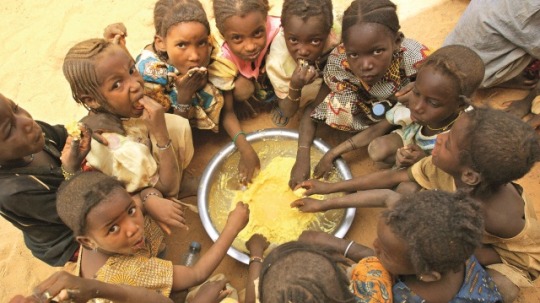
childrenneedsfoundationplc
Child poverty in the United States
Think child poverty is just a problem of the developing world? Think again. Even wealthier nations like the United States struggle with kids in poverty, and it has huge consequences for their futures.
Poverty in Africa
Africa, where half of the population is children, is home to the world’s poorest people and least prosperous countries. Conditions there make it hard to escape poverty.
The source from:www.children.org
Poverty in Africa Poverty, at its most extreme form, is destitution. It’s trying to survive without even the most basic of needs, like food, water or shelter.
0 notes
Text
childrenneedsfoundationplc
childrenneedsfoundationplc
They suffer from malnutrition, can not go to school and have no prospect of a better future. Many of them do not even experience their fifth birthday. The children in Africa need help – here you will find facts and figures that concern us all.
Over 400 million children are currently living on the African continent – and the number is rising. The United Nations estimates that Africa’s population will double to 2.4 billion by 2050. That’s one quarter of the world’s population. 40 percent of all children under the age of five would live in Africa in the middle of the 21st century, according to the prognosis.
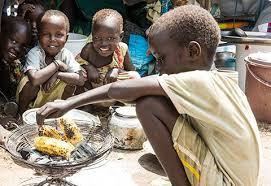
Four out of 400 million: The children in Africa represent a large part of the population.
Children in Africa – numerous and destitute
Africa is already considered Asia after Asia as the continent where most children are born each year. The proportion of under-15s was 41 percent in 2010 across the continent. In some African countries, such as Uganda, Angola, Mali, Niger or the Democratic Republic of Congo, half of all inhabitants are still under 15 years old.
Although there are major regional and social differences, children in Africa are the poorest in terms of population. The situation of African children in sub-Saharan Africa is particularly critical: 33 of the world’s 48 least developed countries are located in this region. The birth rate in this part of Africa is among the highest ever, and tragically, the infant mortality rate as well.
Children in Africa … suffer from hunger and its consequences
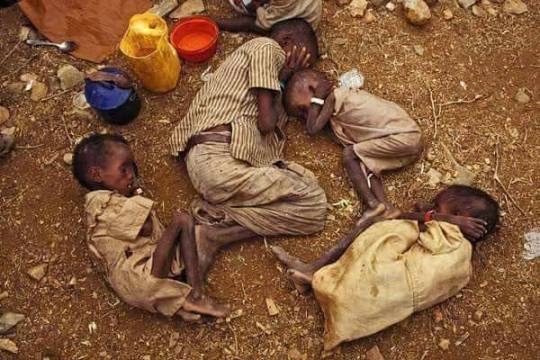
childrenneedsfoundationplc
Is the little one too thin? One third of children in Africa suffer from the consequences of chronic malnutrition: –
The World Bank estimates that between 45 and 50 percent of people in sub-Saharan Africa live below the poverty line, ie they have to live on less than $ 1.25 a day. This makes the sub-Saharan region the poorest region in the world. The African continent also has the highest number of malnourished people, at 24.8 percent. More than 30 percent of children in Africa suffer from the consequences of chronic malnutrition: physical and mental development disorders affect their daily lives. They are often too small for their age, suffer from heart disease, kidney damage, and have a very weak immune system that is very difficult to ward off diarrhea or pneumonia.
Children in Africa … die before the fifth birthday
Despite the millennium goal of reducing child mortality by two-thirds between 1990 and 2015, one child in the world still dies every five seconds. The child mortality rate is particularly high in the African states of Nigeria, Democratic Republic of the Congo and Sierra Leone. Sierra Leone is the country with the highest infant mortality rate ever: out of 1,000 live births, 185 children do not experience their fifth birthday. The five most common causes of early death for many children in Africa include pneumonia, diarrhea and malaria, and complications during pregnancy and childbirth.
Children in Africa … grow up without their parents
Growing up without a mother and father – that’s the sad reality for 15 million children in sub-Saharan Africa. The disease HIV / AIDS has taken one or even both parents. They live with relatives or on the street, without a home. Many of the AIDS orphans were also infected with the treacherous virus while still in the womb or during birth or breastfeeding. A large number of AIDS orphans live in South Africa, Kenya, Tanzania, Uganda, Mozambique and Zimbabwe. Timely education and medication could significantly reduce the number of new infections in Africa.
Children in Africa … are persecuted, recruited, injured and married
Hunger, poverty, violence and armed conflicts mean that millions of African children are fleeing – alone or with their families. War is raging in many countries of the African continent: millions of children are living in constant terror in the midst of terror and violence. In countries such as the Democratic Republic of the Congo, Chad, Somalia, Uganda or Sudan child soldiers are still recruited.
In the countries of western and northeastern Africa, girls are circumcised. Partial or total removal of the clitoris and labia minora is painful, life-threatening, and results in irreparable damage such as incontinence, infertility, or urinary tract infections. Infibulated girls and women are robbed of their sexual ability to experience and feel strong pain during intercourse. Among the African countries where genital mutilation is widespread are Egypt, Somalia, Djibouti, Guinea, Mali, Sierra Leone and the north of Sudan.
Millions of African girls are also threatened with forced marriages in many states. The marriage of underage girls is a tradition in many African tribes. Girls in childhood are married as a so-called “child brides” of their parents to a usually much older man and get far too early own children.
Children in Africa … have to work instead of going to school
Primary education for all – this is the second of the UN Millennium Development Goals, which is unlikely to be achieved by 2015. Many children in Africa are excluded from school and contribute to the livelihood of their family instead. Experts estimate that a total of 30 million children in sub-Saharan Africa do not attend school. 54 percent of them are girls. Particularly critical is the situation in Nigeria, Ethiopia and Niger. Children in Africa work on plantations, in mines, quarries or factories. Often they are forced to prostitute themselves. Most child laborers are exploited and have no chance of attending school because they have neither the time nor the strength to learn.
How the SOS Children’s Villages help children in Africa
For more than 40 years, the SOS Children’s Villages in Africa have provided assistance. In 46 African countries, there are a total of 147 SOS Children’s Villages, where orphaned and abandoned children find a new home. Added to this are additional facilities and development aid projects: kindergartens, schools, vocational training centers, family support programs, SOS medical centers and emergency aid actions. Support the SOS Children’s Villages and ensure that children in Africa have a better future.
The source from:www.soschildrensvillages.org.uk
Hunger, disease, wars: children in Africa are particularly suffering They suffer from malnutrition, can not go to school and have no prospect of a better future.
0 notes
Photo

Latest:Man arrested for raping his daughter NSCDC operatives The Nigeria Security and Civil Defence Corps (NSCDC) Command in Ondo state, says it has arrested a 45-year-old man -Adebisi Akinola, for allegedly raping his daughter for about three years.
0 notes
Text
Latest:70-year-old man remanded over alleged rape of teenager
Latest:70-year-old man remanded over alleged rape of teenager
For allegedly raping a 16-year-old girl, Kayode Oshakoya, is to spend the next 25 days in prison, an Ikeja Chief Magistrates’ Court ruled on Thursday in Lagos.
Oshakoya, 70, was remanded in Kirikiri Prison pending advice from the State Director of Public Prosecutions (DPP).
The Chief Magistrate, Mr P. E. Nwaka, directed that the case file should be sent to the DPP for advice.
The accused, who…
View On WordPress
0 notes
Photo

Latest:Man allegedly defiles co-tenant’s 9-year-old daughter An Ikeja Chief Magistrates’ Court in Lagos on Thursday remanded a 40-year-old man, Dominic Bassey, for 25 days over alleged defilement of his neighbour’s nine-year-old daughter.
0 notes
Text
Latest:South Sudan: UNICEF condemns killing of aid worker
Latest:South Sudan: UNICEF condemns killing of aid worker
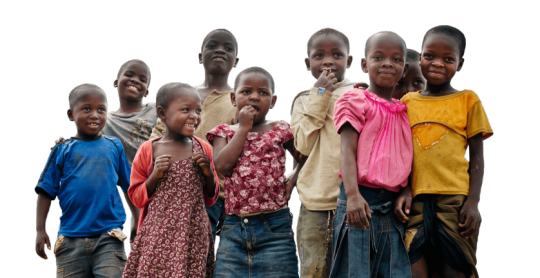
The UN Children’s Fund (UNICEF) on Thursday condemned the killing of one of its drivers by unknown gunmen along the Juba-Bor road in South Sudan.
James Aldworth, UNICEF South Sudan spokesperson, said two of their trucks came under attack on Wednesday morning resulting in the death of one of the drivers.
“We can confirm that yesterday (Wednesday) morning two trucks carrying UNICEF education…
View On WordPress
0 notes
Text
Latest:14 school children injured in truck-van collision
Latest:14 school children injured in truck-van collision
As many as 14 school children have been injured after their van collided head-on with a truck in northern Indian state of Uttar Pradesh Thursday, police said.
The accident occurred on Kairana Bypass Road in the state’s Shamli district.
“The collision took place this morning when the van was carrying the children to their school. All the injured children have been admitted to various hospitals,”…
View On WordPress
0 notes
Text
childrenneedsfoundationplc
childrenneedsfoundationplc
No fewer than 100 children in the Internally Displaced Persons (IDP) camps are feared to have been affected by diarrhoea, the News Agency of Nigeria (NAN) reports.
Four Non-Governmental Organizations (NGOs) confirmed the development to NAN on Monday in Jos during a free medical outreach at the camps.The NGOs are Saphira Global Center For Social Development; Voice For the Girl Child Foundation; Damark Pharmacy and African Child; and Mother Care Safety Initiative, respectively.
NAN recalls that several persons were recently displaced from their homes following the recent attacks on 11 communities in Barkin Ladi and some parts of Bokkos and Riyom Local Government Areas of the state.More than 10,000 persons, including women and children, are reportedly being sheltered at the different IDP camps across the state.
Spokesperson for the NGOs, Mrs Mildred Bako, in an interview with NAN, attributed the illness among the affected patients within their short stay at the camps to the deplorable health condition of the environment.
Bako disclosed that many of the affected patients were between the ages of one month to five years.She noted that the camps lacked basic amenities such as portable drinking water and clean environment, hence the “victims became vulnerable to contacting all kind of diseases’’.Bako described the various camps as an “eyesore”, saying that the hygienic condition was poor and needed urgent attention from government and kind-hearted individuals.
“There is practically absence of basic amenities at the various camps, and so making the displaced persons fall prey to all kinds of diseases.“When we got information that children at various camps are vomiting and passing watery stool, we swung into action to arrest the situation.
“We assembled a team of medical professionals, who diagnosed most of the children and discovered it is diarrhoea.“We have in our little way developed a mechanism to treat the children and even adults diagnosed with symptoms of malaria and other diseases,” she said.
Bako explained that Riyom camp, housing over 2,000 persons, was the worst hit, with the highest number of children infected with the disease.She urged government and spirited individuals to also consider donating health materials and improvement of the health condition of the displaced persons rather than concentrate on donation of food items alone.The State Emergency Management Agency (PLASEMA) and the affected local councils are yet to react to the development.
Source from:guardian.ng/news
Latest:Diarrhoea affects children in Plateau IDP camp – NGOs No fewer than 100 children in the Internally Displaced Persons (IDP) camps are feared to have been affected by diarrhoea, the News Agency of Nigeria (NAN) reports.
0 notes
Text
Latest:US Accuses FG of Condoning Human Trafficking, Says Nigerians Travel to Togo for Child Sex
Latest:US Accuses FG of Condoning Human Trafficking, Says Nigerians Travel to Togo for Child Sex
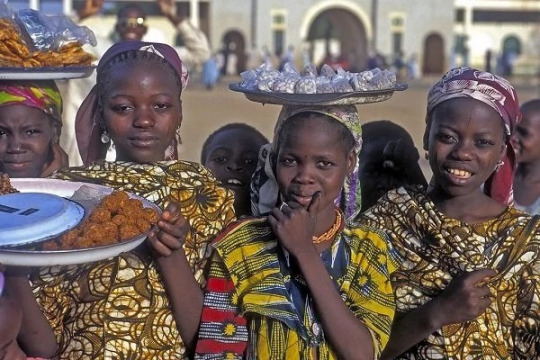
For the second consecutive year, Nigeria has been placed on Tier-2 Watchlist by the United States government for failing to meet minimum standards for the elimination of trafficking. The latest report accused the Nigerian government of turning a blind eye to allegations of trafficking levelled against senior government officials and soldiers as revealed in the 2018 Trafficking in Persons Report.
View On WordPress
0 notes
Text
Topic of Today:Women also sexually abuse children, but their reasons often differ from men’s
Topic of Today:Women also sexually abuse children, but their reasons often differ from men’s
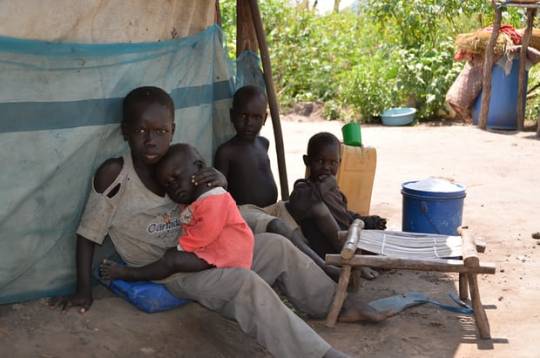
Data from the Royal Commission into Institutional Responses to Child Sexual Abuse recently revealed that, between 1950 and 2010, 60% of all abuse allegedly took place at faith-based institutions. Evidence showed that, in Catholic institutions, 95% of alleged offenders were men. This means the remaining 5% (or 96 of the 1,880 accused) were women.
This may come as a surprise. There is a common…
View On WordPress
0 notes
Photo
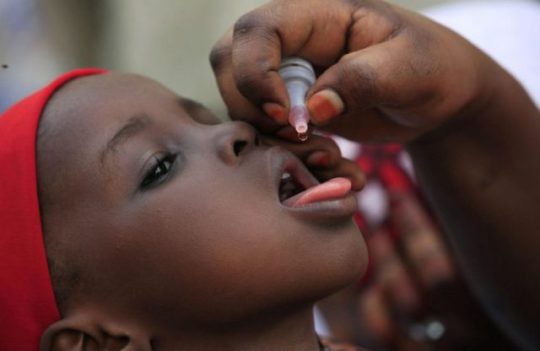
Latest:Polio: Over 100,000 children yet to be immunised in Northeastern Nigeria – Minister
0 notes
Text
childrenneedsfoundationplc
childrenneedsfoundationplc
Young people are all but invisible in the justice system, facing ill treatment at the hands of those who should be protecting them…
The legendary editor of the Guardian newspaper CP Scott famously declared in 1921 that “Comment is free, but facts are sacred”. Unfortunately, when it comes to hard evidence on how many children are locked up in prisons, detention centers, migrant and refugee camps, rehabilitation units or other institutions across the world, the facts are more scarce than sacred.
There is no single source of accurate data for these figures and estimates vary widely between 15,000 and 28,000 in Africa alone, but common sense dictates that the numbers are likely to be worse than even the highest approximations.
The UN Global Study on Children Deprived of Liberty – due to be presented to the general assembly this September – aims to address this data gap.
Whatever the numbers, no child should be kept in prison. Detention should only ever be used as a last resort, and then only for the shortest possible time.
A lack of statistics makes it hard to identify any country or region in the continent as being worse than another. The recent conference on Access to Justice for Children in Africa, convened by the African Child Policy Forum (ACPF) and its partners in Addis Ababa, made it clear that young people are poorly served by the justice systems meant to protect them. Despite some progress in recent years, the conference heard how groups such as children with disabilities, victims of trafficking, sexual abuse and violence, orphans, refugees and migrants are routinely discriminated against: they are denied access to justice, to adequate legal representation and to fair trial.
ACPF held the gathering to call on governments and international agencies, research institutions and experts as well as the media to highlight the injustices children are facing in judicial systems. Participants, numbering more than 200, committed themselves to giving a face and a voice to these children, and making access to justice a reality for all young people on the continent.
Their call to action pulls no punches, noting that children remain predominantly invisible in the justice systems in Africa, that traditional, customary or religious justice remains largely unregulated and renders children particularly vulnerable; and that African laws need to be brought into line with international standards and principles such as the Convention on the Rights of the Child and the African Charter on the Rights and Welfare of the Child.
The call to action makes it clear it is our collective responsibility to ensure progress – governments, the African Union, UN agencies, civil society and non-governmental organizations, academics – no one can shirk their responsibility.
But calling for action is one thing, getting it is another. African countries must make greater strides towards improved access to justice for children. This will be marked by, among other things, law and policy reform that recognize the rights of children in the justice system, as well as growth in services that support these laws. Many African countries now have laws and standards to protect children in the justice system, some have child courts and dedicated police units, but true progress requires their systematic implementation.
Some countries such as Uganda report a significant drop in the number of children being detained. Elsewhere, trials of new technology such as “virtual courts” lessen the stress of children having to appear in person. But progress is painfully slow, and all the while another generation of children faces discrimination and ill-treatment at the hands of the systems intended to protect them.
As the call to action concludes: “There is an imperative on all of us to act now, as the future of our continent depends on ensuring justice for our children today.”
Graça Machel is board chair of the African Child Policy Forum
Source from:www.theguardian.com
Latest:Thousands of children are imprisoned across Africa.They need justice Young people are all but invisible in the justice system, facing ill treatment at the hands of those who should be protecting them...
0 notes